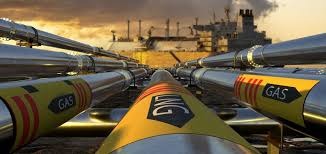Pipelines have played a strategic role in international geopolitics because of their relevance to energy infrastructure. Besides providing the means for powering the economy, oil and gas pipelines determine international relationships, alliances, and conflicts. Pipeline projects usually go beyond technical objectives and serve as instruments of geopolitical strategy, economic leverage, and diplomatic negotiation. They contribute to cooperation or fuel disputes; pipeline politics indeed affects the balance of power at the global and regional levels.
The Strategic Role of Pipelines
Pipelines are crucial to the transportation of energy resources from production centers to consumption points, avoiding shipping constraints and thus ensuring a consistent supply. More than that, their strategic role transcends logistics:
- Economic Leverage: Countries that host or control pipelines often gain economic benefits from transit fees and geopolitical influence. For example, Russia uses its extensive pipeline network to supply Europe with natural gas, bolstering its economic and strategic position.
- Energy Security: Import-dependent nations prioritize stable pipeline access to ensure uninterrupted energy supplies, shaping their foreign policies around energy alliances.
Geopolitical Alliances and Rivalries
Pipeline routes usually reflect and fortify international alliances while marginalizing competing powers.
Key Examples of Pipeline Politics:
- Nord Stream and European Energy Dependency
The Nord Stream pipelines, running from Russia to Germany under the Baltic Sea, are a classic example of pipeline politics. Russia’s dominance as Europe’s primary gas supplier has made the EU heavily reliant on Russian energy. This dependency has often restrained European nations from taking strong political stances against Russia, as seen during the annexation of Crimea in 2014.
However, geopolitical tensions have increased since the Ukraine conflict in 2022. The suspension of Nord Stream 2 has shown that Europe is diversifying its energy sources and reducing dependence on Russian gas by importing more from the U.S., the Middle East, and Africa. This is a testament to how pipelines can be used as instruments of coercion or strategic withdrawal in international politics.
- The Southern Gas Corridor (SGC): A Balancing Act
A strategic project connecting the Caspian Sea region to Europe via Azerbaijan, Georgia, and Turkey, it connects the region directly to the energy market. Thus, Europe wants to get away from Russia and use its gas, aiming at increasing the EU’s energy security while forming economic relations with the Caucasus and Central Asia. The SGC is, of course, also a counterweight to Russian influence and demonstrates that pipeline projects may have a leveling effect on geopolitical interests.
China’s Belt and Road Initiative and Energy Diplomacy
BRI of China has enunciated an integrated role with energy infrastructure. Chinese pipelines such as the China-Myanmar pipeline provide Beijing with direct access to oil and gas from Middle East and Southeast Asia, bypassing maritime chokepoints such as the Strait of Malacca. This serves not only to diversify China’s energy imports but also strengthens its geopolitical influence in participating countries.
Trans-Afghanistan Pipeline (TAPI): A Dream Amid Turmoil
The TAPI pipeline-the proposed route from Turkmenistan to India, passing through Afghanistan and Pakistan-embodies the ambitious endeavor for regional cooperation. However, there are several political instabilities, security issues, and financial constraints that it will have to encounter. TAPI highlights how pipelines can both ignite cooperation and serve as a conflict trigger.
Pipeline Politics: Challenges
- Geopolitical Tensions: Pipelines frequently cross over disputed territories, and this creates disputes. For example, the EastMed pipeline project is one that has heightened tensions between Greece, Turkey, and Cyprus because it aims to transport gas from the Eastern Mediterranean to Europe.
- Environmental Concerns: Pipelines have come under increasing opposition because of their environmental impact-from construction-related damage to risks of leaks and spills.
- Technological Risks: Cybersecurity risks have been a significant issue with pipeline infrastructure, as was evidenced by the 2021 ransomware attack on the Colonial Pipeline in the U.S. which resulted in the disruption of fuel supplies and exposed vulnerabilities.
The Way Forward: Mitigating Risks and Maximizing Benefits
In the pursuit of pipeline politics, countries need to come up with policies that balance economic interests with environmental sustainability and geopolitical stability.
- Diversification of Energy Sources: Import-dependent countries should diversify their energy mix so that reliance on specific suppliers or routes is reduced.
- Multilateral Agreements: Regional cooperation and multilateral frameworks can resolve pipeline route and transit rights disputes.
- Green Transition: Investments in renewable energy and hydrogen pipelines can reduce environmental risks and be aligned with global climate goals.
- Cybersecurity Enhancements: Strengthening the digital defenses of pipeline infrastructure is critical to counter the emerging threats.
Conclusion
Pipeline politics stands at the juncture of energy, economics, and geopolitics. Though pipelines bring with them chances for cooperation and economic development, they also represent a potential threat to conflict and environmental degradation. Therefore, with an evolving global energy landscape, pipelines would remain important instruments in the pursuit of international relations. If sustainability and collaboration prevail, then it will be easier for nations to utilize the energy from pipelines as tools for stability and prosperity in the interconnected world.
Author : Ms. Anadhi Sharma, Bachelor in Political Science, Hindu College, University of Delhi
Disclaimer – The views and opinions expressed in the commentaries/blogs/articles are those of the authors and do not necessarily reflect the official policy or position of the Forum for Global Studies.

